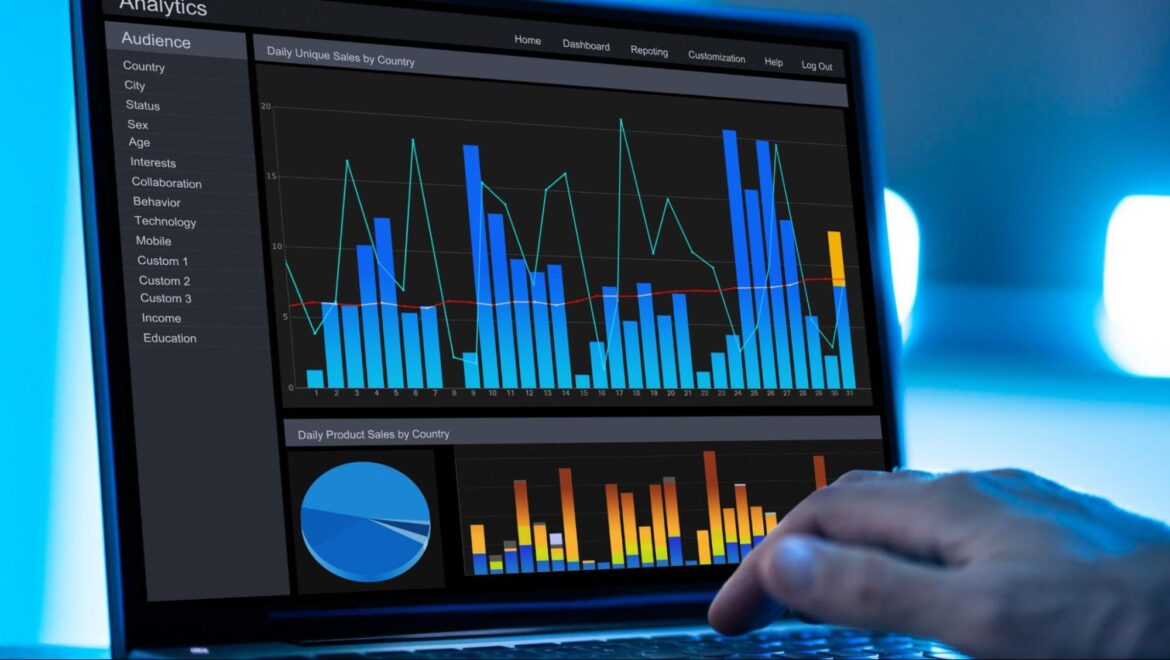In a digital landscape overflowing with information, businesses and individuals face the daunting task of sifting through vast amounts of data to extract valuable insights. This is where internet research services become indispensable. These specialized services are designed to help clients efficiently gather, analyze, and interpret online data, allowing for informed decision-making. For those interested in learning more about how these services can elevate your research efforts, check out this resource on Data Analytics.
What Are Internet Research Services?
Internet research services refer to a range of professional services that aid in gathering, analyzing, and interpreting information from online sources. These services can include anything from market research and competitor analysis to academic research and social media monitoring. In a world where data drives decision-making, the importance of professional internet research cannot be overstated. For those interested in the real estate sector, Malta real estate is a growing market, and leveraging data-driven insights can provide a competitive edge when making investment decisions.
Why Use Internet Research Services?
- Expertise: Research professionals have the skills and knowledge to find credible sources and extract relevant information. Their expertise can save you time and ensure the accuracy of the data.
- Time-Saving: Conducting thorough research can be a labor-intensive process. Internet research services allow you to delegate this task, enabling you to focus on your core responsibilities.
- Cost-Effectiveness: Hiring a full-time research team can be expensive for many organizations. Internet research services provide access to expert resources without the overhead costs.
- Custom Solutions: Research needs can vary significantly from one project to another. Internet research services can be tailored to meet specific requirements, ensuring you get the information that is most relevant to your needs.
- Enhanced Decision-Making: Reliable data is essential for making informed decisions. Internet research services provide insights that can influence strategies, marketing plans, and product development.
Types of Internet Research Services
Internet research services can be categorized into various types, each serving a specific purpose. Here are some of the most common categories:
-
Market Research
Market research is vital for businesses looking to understand their target audience, competitors, and market dynamics. Internet research services can conduct surveys, analyze trends, and compile reports that provide insights into consumer behavior, market size, and competitive landscapes.
-
Competitor Analysis
Understanding your competitors is crucial for staying ahead in any industry. Internet research services can help you gather information on competitor pricing, product offerings, marketing strategies, and customer feedback, providing you with a comprehensive view of the competitive landscape.
-
Social Media Monitoring
Social media is a powerful tool for brand engagement, but it can also be a minefield of information. Internet research services can monitor social media channels for brand mentions, customer sentiment, and industry trends, helping you manage your online reputation and adapt your strategies accordingly.
-
Academic Research
For academics and researchers, internet research services can streamline the process of gathering scholarly articles, data sets, and other resources. These services can help identify relevant literature, compile bibliographies, and even assist with data analysis.
-
Data Mining
Data mining involves extracting useful patterns from large datasets. Internet research services can employ sophisticated tools and techniques to identify trends and insights from big data, enabling organizations to make data-driven decisions.
-
Public Records Research
Accessing public records can be cumbersome and time-consuming. Internet research services can assist in locating and analyzing public documents, such as court records, corporate filings, and property records, making it easier for clients to obtain necessary information.
The Internet Research Process: Step-by-Step
When you engage in internet research services, the process typically follows a structured approach to ensure thoroughness and accuracy. Here’s a detailed breakdown of what to expect:
Step 1: Define Objectives
The first step in any research project is to clearly define your objectives. What specific information do you need? What are your goals? Having well-defined objectives will guide the research process and ensure that the outcomes align with your needs.
Step 2: Develop a Research Plan
Once the objectives are established, a research plan is created. This plan outlines the methods and tools that will be used to gather data, as well as the timelines and milestones for the project. It serves as a roadmap for the research process.
Step 3: Data Collection
Data collection is the core of the research process. Research professionals utilize various tools and techniques to gather information from credible sources, ensuring that the data collected is accurate and relevant. This may involve online searches, surveys, and data scraping.
Step 4: Data Analysis
After the data has been collected, it undergoes analysis to extract meaningful insights. This may involve statistical analysis, content analysis, or qualitative assessment, depending on the nature of the research. The goal is to interpret the data in a way that informs decision-making.
Step 5: Reporting Findings
Once the analysis is complete, the findings are compiled into a comprehensive report. This report includes key insights, actionable recommendations, and supporting data. The aim is to present the information in a clear and concise manner that facilitates understanding and decision-making.
Step 6: Follow-Up
Post-research follow-up is crucial for ensuring that clients fully understand the implications of the research.

Clients may have questions or require additional information based on the findings, and a reputable internet research service will provide ongoing support.
Finest Practices for Choosing an Internet Research Service
Selecting the right internet research service can be challenging, given the multitude of options available. Here are some best practices to help you make an informed decision:
-
Evaluate Experience and Expertise
Look for providers with a proven track record in the specific type of research you require. Review their case studies, client testimonials, and areas of expertise to gauge their capabilities.
-
Understand Their Methodology
Inquire about the research methodologies and tools that the provider uses. A reputable service will have a structured approach to research, ensuring that data collection and analysis are thorough and systematic.
-
Check for Customization Options
Your research needs may be unique, so it’s essential to choose a provider that offers customized solutions. Discuss your specific requirements to see how they can tailor their services to meet your goals.
-
Evaluate Communication and Reporting
Effective communication is key to a successful research project. Ensure that the provider has a clear reporting structure and is responsive to your inquiries throughout the process.
-
Consider Data Security
Data security is paramount, especially if you’re sharing sensitive information. Verify that the service provider has robust data protection measures in place to safeguard your data.
The Impact of Technology on Internet Research Services
Technology has transformed the landscape of Internet research services in significant ways. Here are some key technological advancements shaping the future of this industry:
1. Artificial Intelligence
AI is revolutionizing how research is conducted. From automated data collection to predictive analytics, AI tools can enhance efficiency and accuracy, allowing researchers to focus on strategic insights.
2. Big Data Analytics
The rise of big data presents both challenges and opportunities for Internet research services. Providers are leveraging advanced analytics tools to extract insights from vast datasets, enabling organizations to make more informed decisions.
3. Real-Time Data Monitoring
The demand for real-time data is increasing. Internet research services are adapting by offering real-time monitoring of trends, social media, and competitor activities, allowing clients to respond swiftly to changing market conditions.
4. Enhanced Visualization Tools
Data visualization is becoming increasingly important for presenting research findings. Providers are investing in advanced visualization tools that make it easier for clients to interpret complex data and gain actionable insights.
5. Increased Focus on Credibility
As misinformation spreads, sourcing credible information is paramount. Internet research services prioritize the verification of sources to ensure the accuracy of the data they provide.
Challenges in Internet Research
While internet research services offer numerous advantages, they are not without challenges. Here are some common hurdles faced by research professionals:
1. Information Overload
The sheer volume of information available online can be overwhelming. Distinguishing between credible sources and unreliable data is crucial for effective research.
2. Rapidly Changing Data
In many fields, data can change rapidly. Keeping up with the latest trends and developments requires constant vigilance and adaptability.
3. Data Privacy Concerns
With increasing scrutiny on data privacy, researchers must navigate legal and ethical considerations when collecting and using data, particularly in public records and social media monitoring.
4. Resource Constraints
Budget and time constraints can limit the scope of research projects.

It’s essential for clients to communicate their needs clearly to ensure that providers can deliver the most relevant insights within the available resources.
Future Trends in Internet Research Services
As we look ahead, several trends are likely to shape the future of Internet research services:
1. Increased Demand for Personalization
Clients will increasingly seek personalized research solutions that cater to their specific needs and objectives. Providers will need to offer flexible and tailored services to meet these demands.
2. Emphasis on Ethical Research Practices
As data privacy concerns grow, there will be a heightened focus on ethical research practices. Transparency in data collection and usage will become a critical factor in building trust with clients.
3. Growth of Collaborative Research Models
Collaboration between researchers, clients, and stakeholders will become more common. This approach can enhance the quality of research and ensure that it meets the needs of all parties involved.
4. Integration of Cross-Disciplinary Approaches
The increasing complexity of research questions will drive the integration of cross-disciplinary approaches. Combining insights from various fields can lead to more comprehensive and effective research outcomes.
5. Greater Utilization of Cloud Technologies
Cloud-based tools and platforms will facilitate more efficient data collection and analysis, allowing research teams to collaborate seamlessly, regardless of geographical location.
Conclusion
In a world overflowing with information, the role of Internet research services has never been more critical. By




